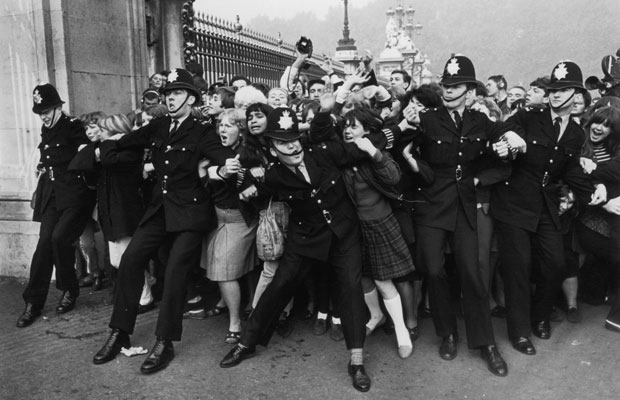Saturday, March 13: Mississippi Mud
FANDEMONIUM
by John M. Floyd
Fan·de·mo'·ni·um (noun): Wild and disorderly conduct by those who enjoy your fiction.
Okay, so it’s not a real word. It is, though, what we as authors would like to create — or at least we think we would.
Writer rooters
Who are our fans? Certainly our mothers, hopefully our other relatives, probably our friends, and possibly the members of our writers’ groups. But do they qualify as fans, or would they fall into the less pleasing (but just as important) category of “supporters”?
I once heard someone smarter than I am (I don’t remember who, but that’s understandable since most folks are smarter than I am) say that you can be sure you’ve made it as a writer only when someone you don’t know praises your work. I agree. Someone you know almost always wants to make you happy; someone you don’t know probably wouldn’t mind telling you your writing sucks. When a total stranger says or writes something good about your fiction, take note: you have a fan.
I myself am a fan on many levels — a fan of nameless people and groups (physicians, researchers, missionaries, our armed forces), of activities (football, reading, movies, puzzles), of performers (actors, athletes, singers, musicians), and so forth. But maybe most of all, I’m a fan of several dozen authors — authors whose stories I can’t resist reading wherever I find them, whose hardcover novels I can’t resist buying as soon as they come out. As Dr. Seuss might say, I wish I had fans like the fan I am.
Star trek
Unfortunately, serious fandom occurs only after famedom, and that’s a level that’s hard to reach. Sometimes it happens by accident: a camera catches a president with a book under his arm on his way to Air Force One, a movie mogul takes home the wrong stack of scripts and discovers the next George Lucas, a celebrity casually mentions a writer’s first novel on a talk show. That is of course rare; stardom usually comes only after long, hard years of plugging away and enduring rejections and mediocre sales. Being rewarded after paying one’s dues is the kind of success fans seem to appreciate the most — but even that kind is seldom attained. Often we spend the years plugging away and enduring rejections and still never become famous. We have to settle for being . . . what? Mini-stars? Asteroids? Asterisks?
The upside of all this is that people who truly enjoy writing don’t have to become stars in order to be successful. If we like what we’re doing, if we’re in the ranks of those lucky souls who will always love to write whether they publish anything or not, that in itself is success. I’m happy whenever I’m writing and/or dreaming up stories, and that’s the important thing.
I wouldn’t mind a few fans, though. At Bouchercon last fall, I remember seeing a lady stop, do a double-take, and then point in my direction and tell her friends, “There he is. I told you he was here!” I of course stood up even straighter, and smiled my best smile as they rushed over —
And marched right past me, to gather around Harlan Coben.
Oh well. Maybe next year . . .






















I’m your fan, John.
What you express is why I try to remember to write fan letters to authors of excellent short stories when I come across them. I fugure they can use it.
I think I have been approached exactly once by a fan who didn’t know me, not counting signing events, or other authors. I wouldn’t mind if it happened again.
Rob, I’m yours as well. No one can now say we’re among the ranks of the fanless. And I know what you mean — I too try to send a note to those whose stories I enjoy.
One of the biggest advantages of conferences like Bouchercon, to me, is putting faces with names of authors I admire, and I’ve found most of them as kind and gracious as I’d hoped they would be.